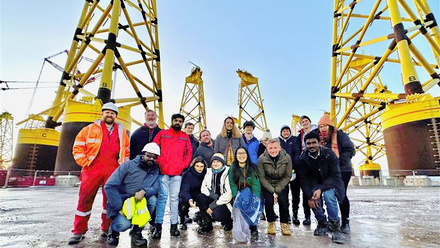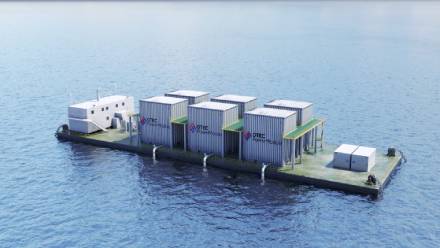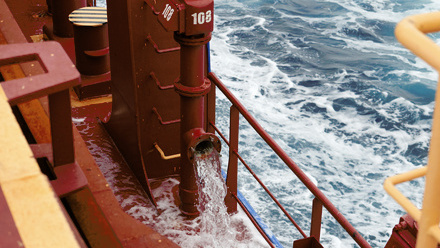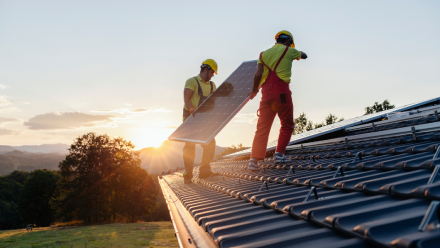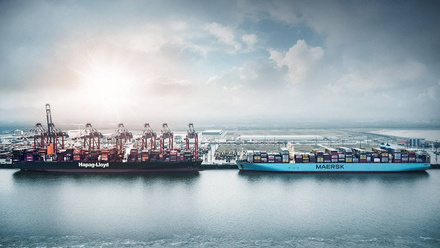The IMarEST hosts its first Annual Conference
On Friday 15 March, the Institute of Marine Engineering, Science & Technology (IMarEST) hosted its inaugural Annual Conference, which looked at shaping the future of a sustainable blue economy through the Institute’s technical and policy work, especially the work of its Special Interest Groups (SIGs). This conference was also the first “virtual” conference held by the IMarEST through IMarEST TV, where members who could not attend in person in London, could live-stream all the talks and discussion and could get involved by sending in questions online (of which there were more than a hundred!).
The conference saw over 300 delegates registered from 42 countries, representing 178 organisations across marine engineering, science and technology.
Ralph Rayner, of the IMarEST’s Operational Oceanography SIG, started the morning off with his talk about the growing need for sustained ocean observations to help in protecting the US$ 1.5 trillion ocean economy. He then delved deeper into the future of blue growth. Dave Carlin of the Ocean Governance SIG looked at the topic of deep-sea mining and its necessity for allowing the effective development of assets such as renewable power infrastructure, despite the unknown environmental effects of deep-sea mining activity. He summarised the predicament as a type of Catch-22, “Do we mine so that we can understand more about the effects? Or do we not mine until we have a better understanding of the effects?”
Tristan Smith of the Emissions from Shipping SIG delivered an in-depth talk on the need for the shipping industry to reduce its emissions in a bid to keep to the 2˚C warming limit outlined in the Paris Agreement. Smith highlighted that in order to do so, we need to develop extremely low, if not zero, emission fuels.
Renewables are paramount to achieving this goal. In her talk, Jennifer Molina Gomez, of the IMarEST’s Offshore Renewables SIG, addressed the challenges of generating and converting to offshore renewable power, including the struggle to balance energy security, energy equity and environmental sustainability. She noted the need for cross-sectoral collaboration and the promising prospects of renewable energy in the UK.
"The UK has the second largest tidal range in the world and 50% of EU resource which lends a positive outlook"
The Institute believes invasive species to be one of the most significant threats to marine and freshwater ecosystems. Ballast experts Marcie Merksamer and Kevin Reynolds discussed the implementation of the Ballast Water Management Convention; the effects of non-compliance and the difficulty in enforcing the Convention globally. The Ballast Water Management SIG is highly active at the International Maritime Organization and consistently inputs on the development of policy and regulation relating to ballast water.
"If you arrive in port with non-compliant ballast water, the two options should not be either 'go away' or 'discharge and do better next time'. There needs to be planning and there are contingency measures you can take either immediately or in port and other alternatives"
In line with invasive species risks, the work of our Biofouling Management SIG was presented in an engaging talk from Tom Vance. Biofouling on ship hulls can increase fuel consumption by up to 40%, and paint treatments to mitigate this can introduce biocides to the marine environment. Tom addressed these issues, the methods for management and explained the conundrum of balancing effective anti-fouling treatment with environmental protection.
The latter talks in this year’s conference concerned the human element and autonomy in the maritime sector. Martin Shaw, of the IMarEST’s Human Element SIG addressed the difficulty for today’s seafarers in juggling organisational and technical factors in his talk. He also pointed out the irony of automation – the need for crew to know how to fix a problem when machines and technology malfunction. Following on with the theme of human-machine interaction, Gordon Meadow of the Marine Autonomous Surface Ships SIG presented the final talk of the conference. He spoke on the notion that robots and autonomy arguably are not a risk to future employment in the sector, but that it is in fact jeopardised by a failure to adapt.
“Casualties in the marine industry are equivalent to an airliner going down every 2 weeks in the aeronautical industry. Increasingly complex technology and more claims on the attention of those onboard makes things harder”
The need for adaptation is not solely applicable to the topic of autonomy, but was a ubiquitous theme across all the areas covered in this series of talks. It stood out as the key to shaping the future of a sustainable blue economy. The final open panel discussion saw the speakers answering questions from an audience located all over the world. One question asked “What is the single most important technology for each of the panellists?” One panellist stated that there was no shortage of technological innovation to respond to the environmental challenges we are facing but the difficult was in our ability to implement them, either because of limitations in policy or investment, and that is where the real challenge lies.
You can watch the full IMarEST Annual Conference 2019 on YouTube.

